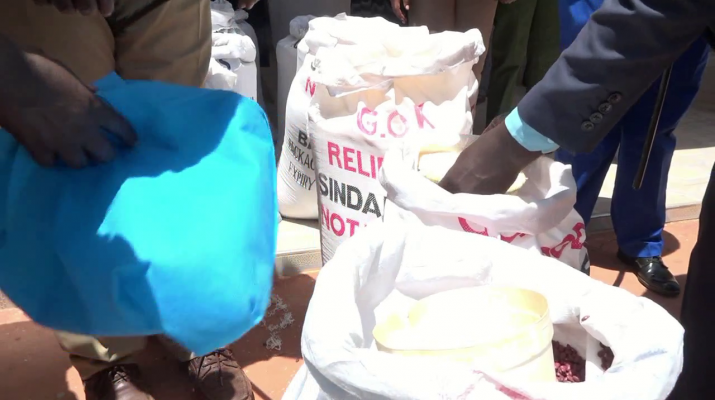Squatters of Turkana origin living especially in the slum areas of Marigat and Mogotio in Baringo are calling on both levels of government to consider them in the ongoing distribution of relief food programme.
Solomon Tetekori, a resident of Katorongot slum in the outskirts of Mogoto town said they are among the marginalized communities in the county that have been worst affected by the ravages of drought since they do not have reliable sources of food.
“We want to be supplied with enough food because we are squatters and we do not have a land where we can cultivate and produce food for our households,” he said.
Mzee Tetekori who spoke to KNA in Kabarnet town said that they have about 20,000 members drawn from communities spread across seven sub counties who are in dire need of food ration, water and other basic support interventions from national government, county government and well-wishers.
He stated that the current predicament has made life unbearable for them but he believes that the current government of Dr William Ruto will listen and sort out their problems once and for all.
Tetekori who is the county chairman of squatters stated that from the past experience in relief food distribution, many needy cases have been neglected due to the growing number of beneficiaries.
“We want the distribution of food to be instead delegated to the governor’s office because we feel that some of the needy people in the grassroots are not benefiting whenever such an intervention program is rolled out by the government,” he said.
Tetekori suggested that the food can be converted into cash transfer for easy accessibility and to cure favoritism and tribalism during distribution.
The National Drought Management Authority (NDMA) assessment report indicates that over 2,000 households in the county face starvation as the government and humanitarian agencies work to mitigate the situation.
According to the report the most affected areas being Tiaty, parts of Mogotio, Baringo North, Baringo South and lower parts of Baringo Central.
Elderly and persons living with disability are the worst affected and vulnerable groups find it hard to get help when food is being dished out.

